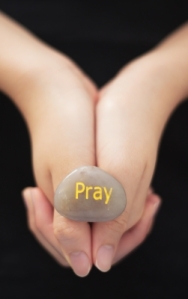
I’m talking to my mother-in-law on the telephone. Bless her, she is so concerned about what we are going through with Blake. She is also trying so hard to figure out how she can help. She reads this blog religiously. She’s probably reading it right now. At any rate, she’s just spent several days with Blake and she’s anguishing over what she’s seen. It pains her to see the never-ending OCD cycle play out in his religious practice.
“Nobody understands, though,” she tells me. “He’s so charming, so bright, and so polite that people don’t see what’s going on.”
She relates to me how she tried to share what is going on with some friends of hers who know Blake. She explained to them the relentless repeating of prayers and the way that OCD becomes intertwined with religion – until it’s nearly impossible to tell where one begins and the other ends. She poured out her anguish to them.
“I wish I had a son who was religious,” was the reply she received. She was so surprised, so disheartened. How could they fail to see that his religious practice is not a pleasure, but a source of daily torture? She had just explained that religion had been overshadowed by OCD. Didn’t they hear her? She felt alone, and I felt for her. We are in this together.
I regularly find it difficult to explain to others that, while my son appears to be a religious young man and that, yes, it is nice to see a young man honor his religion, that his practice is convoluted. It is polluted. What they cannot see is the ugly side of his practice. They cannot see my child repeating prayers he has already said – over and over – lest he offend his Creator. They cannot see the hours he spends pouring over information on the internet and trying to discover how bad the sin he believes he has committed really is. They do not see the washing machine that is frequently filled with sheets that must be washed because some wretched unreligious thing has happened in them. They do not see him sleeping on the floor instead of in bed because of his sin. They do not watch him fast for entire days over and over again so that he can redeem himself. They do not listen to him sobbing for hours on end because he believes he has sinned and cannot be redeemed. Nor do they see my husband and I going to him over and over during those hours, begging him to tell us what is wrong, only to have him say he needs to be alone as he continues to cry.
This is not religion as I know it. This is not something to be grateful for. This is sadness. This is pain. The G-d I know does not make us pay so dearly for being close to Him. For me, true spirituality involves being uplifted, feeling a greater sense of belonging and of purpose. This is lost on my boy.
My husband and I are feeling like we can’t just do nothing. We have an appointment with a religious leader next week – someone who has offered to hear our story and see if he can help. What he can offer that others haven’t, I’m not quite sure, but we are hoping he can help us find a religious mentor for Blake. Perhaps someone who can guide him spiritually, while separating out the OCD madness. Maybe this will help. Maybe. As always, I have to hold out hope. It’s what I cling to – hope. I’ve still got it. I refuse to fall into despair. There is always hope.

![IMG_2101[1]](https://ocdinthefamily.files.wordpress.com/2014/04/img_21011.jpg?w=225&h=300)

